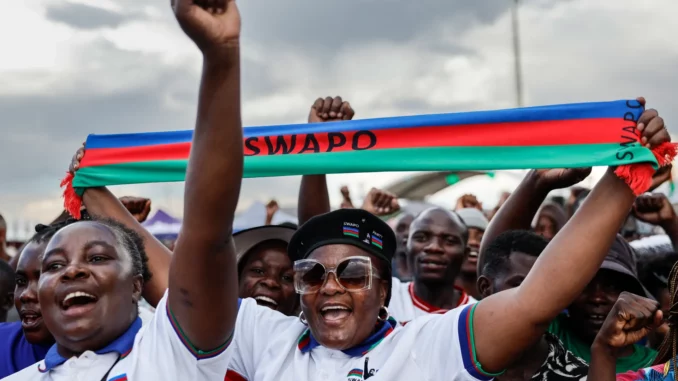
As many as 1.4 million Namibians could turn out to vote on Wednesday (27 November) in presidential and parliamentary elections, with the country expected to embrace a change in leadership and governance, thus following the recent trend across southern Africa where support for long-standing ruling parties has dwindled.
About half the Namibian population are registered to cast their ballot to decide the makeup of Parliament and who will be the president for the next five years. South West Africa People’s Organisation (SWAPO), in power for 34 years since independence from apartheid Africa in 1990, may see a decline in the elections due to growing frustration caused by high unemployment and economic hardship, especially among young people. Netumbo Nandi-Ndaitwah, the current vice president and the ruling SWAPO party’s candidate, is one of the 15 candidates running for president. Results are expected by the weekend, and a runoff would be held if any candidate didn’t win more than 50% of the votes, which has never happened before in Namibia.
SWAPO has already seen a gradual decline since the 2019 parliamentary elections when it lost its two-thirds majority in the National Assembly for the first time since 1990. The development in the former German colony follows a similar trend across southern Africa, from South Africa to Botswana to Mauritius where support for long-standing ruling parties has markedly dwindled. The ruling party in neighboring Botswana lost in a landslide last month after 58 years in power since independence from Britain, while voters in Mauritius delivered a surprisingly heavy electoral defeat for its incumbent party this month. South Africa’s once-strong African National Congress (ANC) had to form a coalition government with the Democratic Alliance (DA) to govern for the first time since independence.
